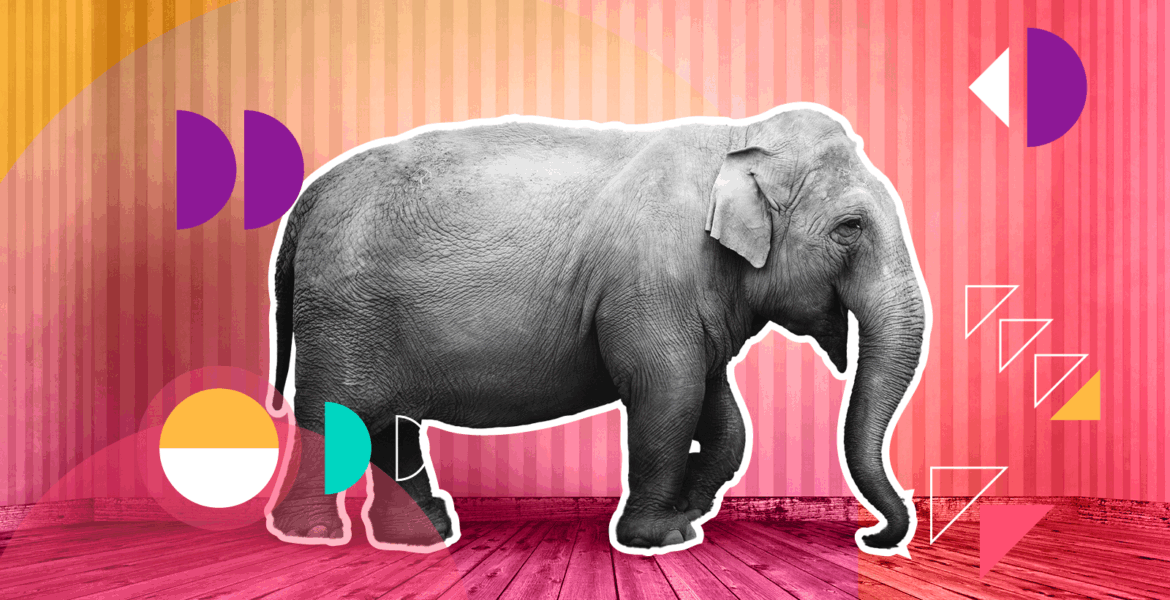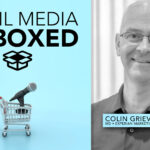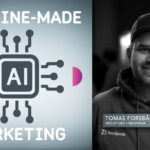By Kirsty Hathaway, Executive Creative Director at JOAN London
Vulva.
One anatomically correct word. One very important part of the human body, fine-tuned over millions of years of evolution.
I have one. Half the world’s population has one.
And yet, despite being a self-assured, assertive woman (and mum to a daughter), it’s a word I used to feel weirdly uncomfortable saying out loud. It felt too intimate. Too loaded. Taboo. And it wasn’t until we started working with intimate care brand Luna Daily that I even realised I felt that way.
Sounds silly, right? But it points to a much bigger problem. In 2025, 80% of women still can’t correctly identify a vulva on a diagram. That is a mind-blowing stat, and it’s frankly dangerous that we know so little about ourselves.
There’s only one way to start fixing a problem like that: you’ve got to confront the awkwardness. Have the hard conversations. Push past your own boundaries, and help others do the same.
And that means brands and agencies need to get a little more comfortable with being uncomfortable.
Uncomfortable truths make great creative
Before I worked in agencies, I was a magazine editor (back when people actually read them). And when you’re trained editorially, one thing matters: the audience. What’s going to make them stop and pay attention? Why should they care?
I carry that same thinking into advertising. Everything we do has to make people feel something, because that’s how you earn their interest. And sometimes, that ‘something’ is discomfort.
Discomfort makes us stop and reflect. It challenges, provokes, even annoys. But when it’s done with intention, it can shift perspectives. Change behaviour. Drive culture forward. Because the more we talk about uncomfortable things, the less uncomfortable they become.
That’s exactly what we set out to do with Luna Daily and our ‘Vulva Therapy’ campaign. Luna Daily exists to normalise conversations around female bodies, and the word ‘vulva’ is central to that.
So we made it impossible to ignore. We stuck it everywhere – VULVA, in bold, unapologetic type – across billboards, digital platforms, guerrilla takeovers. Every ad featured a phone number for a bespoke therapy hotline, created for anyone feeling triggered by the word.
That campaign proved that doing something scary can really pay off. On launch day, Google searches for ‘vulva’ spiked by 35%. A Luna Daily blog post explaining the difference between vulva and vagina got over 700,000 views.
But it only worked because it was grounded in truth. We weren’t using shock for the sake of it. We weren’t pointing fingers or trying to shame people for feeling weird about it. We simply invited them to examine their own discomfort – and we did it with empathy, honesty, and a little bit of humour.
That’s the sweet spot. That’s when people open up, reflect, and start to see things differently.
You see it in other great work too: Patagonia’s ‘Don’t Buy This Jacket’. Dulcolax’s ‘#PooTaboo’. Proper, purposeful, provocative ideas that made people sit up and take note. And most importantly, both campaigns were transformative for their brands. The Patagonia work is over a decade old, and people still talk about it.
There are still loads of topics we tiptoe around: salaries, menopause, mental health, infertility, loneliness, sex. All things people care deeply about – and all fertile ground for brands willing to be brave.
Brave ideas need brave environments
Campaigns like Vulva Therapy don’t just happen. You need a client who’s up for it – but just as importantly, an agency environment that makes brave work possible.
Because let’s be honest – we all feel that fear. The fear of being rejected by the client. Of getting it wrong. Of public backlash. So how do we push forward anyway?
Start with the insight. If your thinking is grounded in truth, no one can argue with it. Discomfort without meaning is just noise – but discomfort rooted in human truth? That’s powerful.
But it’s not just about the work. It’s about how we work. We’ve got to build cultures that encourage risk, vulnerability, challenge. Where people feel safe to speak up, to throw out the mad idea, to be honest. Psychological safety isn’t a buzzword – it’s a creative essential.
Same goes for diversity of thought. It’s not a box-tick. It’s the thing that helps you avoid blind spots. That makes the work sharper. When we worked with Cybersmile on a campaign about cancel culture, we were nervous. The topic was a minefield, and we really didn’t want to get cancelled ourselves. But we came at it with honesty, humility, and a team of people with very different perspectives. And that’s what gave us the confidence to move forward.
Feel the fear. Do it anyway.
Yes, smaller brands often have more freedom. Less red tape. More reason to take risks. But that doesn’t mean big brands can’t do it too.
Fear is the enemy of progress. Fear of backlash, of saying the wrong thing, of sticking your neck out. But the brands that take calculated risks – the ones that dare to be different – are the ones that stand out, cut through, and drive real change.
Because at the end of the day, no risk means no reward.
So, I’ll say it again – vulva. One uncomfortable word that, when used with care and courage, can help change the world.
And if you’re willing to sit with your own discomfort for a moment, you might just find a way to do the same.











